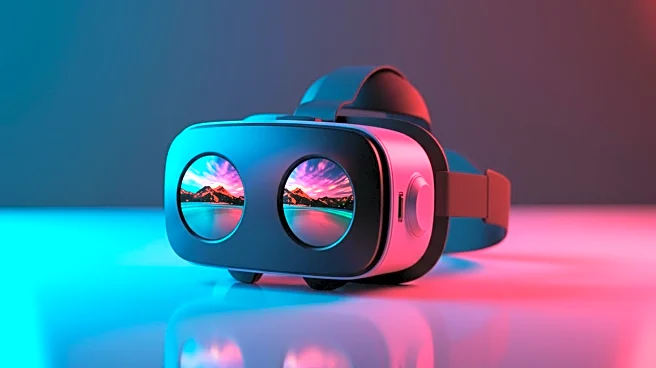What's Happening?
McDonald's is introducing 'McDonaldland VR,' a digital universe experience to promote its new limited-time 'McDonaldland Meal.' This initiative revives the McDonaldland concept from the 1970s, now in a virtual format. The meal includes a milkshake with a surprise flavor, a choice of a Quarter Pounder with Cheese or 10-piece Chicken McNuggets, fries, and one of six exclusive collectible tins. In McDonaldland VR, users can interact with animated avatars of McDonald's characters like Grimace and Hamburglar, play mini-games, explore themed worlds, and find digital collectibles. The experience is accessible via Meta Horizon Worlds and Web VR, developed by McDonald's media agency Admerasia.
Why It's Important?
The launch of McDonaldland VR marks McDonald's continued expansion into the metaverse, following its 2022 virtual summer camp initiative. This move reflects the fast-food giant's strategy to engage younger, tech-savvy consumers through immersive digital experiences. By integrating virtual reality with its marketing efforts, McDonald's aims to enhance brand loyalty and drive sales of its new meal deal. The initiative also highlights the growing trend of companies leveraging virtual environments to create interactive and engaging consumer experiences, potentially setting a precedent for future marketing strategies in the fast-food industry.
What's Next?
McDonald's will likely monitor consumer engagement and feedback from the McDonaldland VR experience to assess its effectiveness in driving sales and brand interaction. Success in this venture could lead to further investments in virtual reality marketing and expansion of digital offerings. Other fast-food chains may follow suit, exploring similar strategies to capture the attention of digital-native audiences. Additionally, McDonald's may consider expanding its virtual universe with new features or collaborations to maintain consumer interest and capitalize on the growing popularity of the metaverse.
Beyond the Headlines
The introduction of McDonaldland VR raises questions about the ethical implications of marketing to younger audiences through immersive digital experiences. As companies increasingly use virtual reality to engage consumers, there is a need to consider the impact on privacy, data security, and the potential for addictive behaviors. Furthermore, the blending of physical and digital worlds in marketing strategies may influence cultural perceptions of brand interaction and consumerism, prompting discussions on the long-term effects of such innovations.









